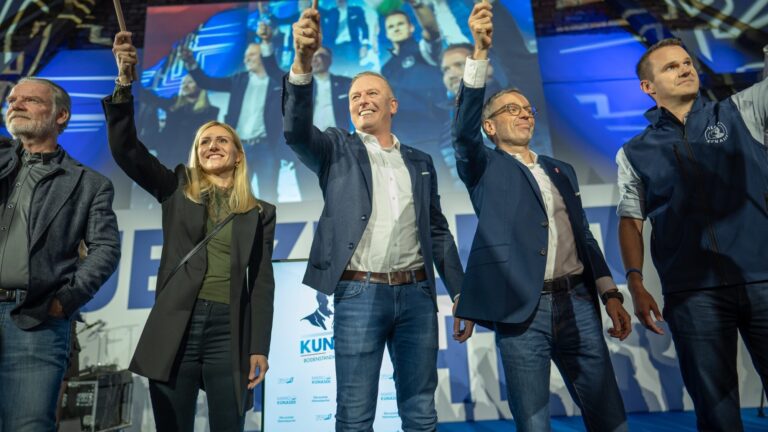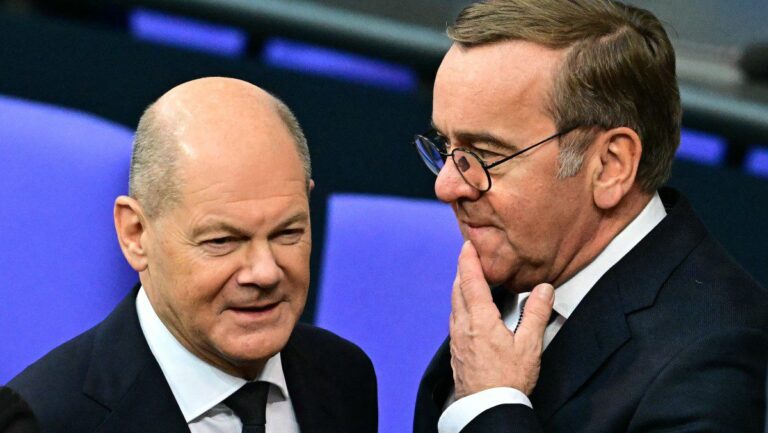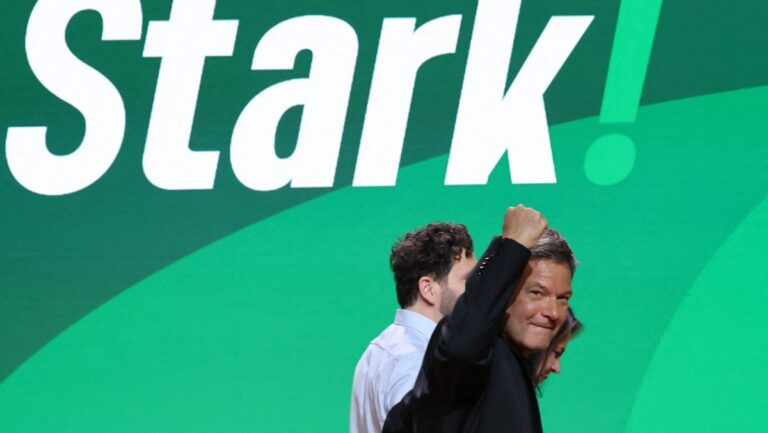The four Central European nations that make up the Visegrád Group (V4) agreed to disagree and continue their cooperation despite earlier signals by both the Czech and the Polish prime ministers that the disagreements on Ukraine could cause severe disruptions in the relationship.
In a joint press conference after their meeting in Prague on Tuesday, February 27th, the four leaders agreed there are strains in the V4’s relationship but voiced their optimism with regard to continued cooperation in the future in areas where they are stronger together.
After a long, open and sincere discussion, we all agreed within the V4 that Russia's attack on Ukraine was a flagrant violation of international law and that Ukraine needs our help. pic.twitter.com/lnfKF1C5HK
— Petr Fiala (@P_Fiala) February 27, 2024
Czech PM Petr Fiala said the V4 countries differ in their views on the causes of the Russian aggression against Ukraine and on the forms of assistance they are willing to provide to the country, but they all agree that Russia’s aggression against Ukraine is a gross violation of international law and that Ukraine needs help. Hungary and Slovakia are against providing military aid, but they are ready to contribute in other ways—with humanitarian or financial assistance, he added.
Slovakian PM Robert Fico said the meeting on Tuesday was extremely difficult, but all four leaders realise that they have to look to the future: the war will end; so will their differences of opinion, but the V4 will remain as an important regional bloc.
“When it comes to assistance, despite the differences, we can help where there is common ground, and this is a reason to continue cooperation in the V4,” Hungarian PM Viktor Orbán stressed. Though he acknowledged that the meeting was not easy, the four countries have common interests, which they are much better able to represent in the EU together.
“I would like us to work together to ensure that at least some of the issues are on our common agenda, and after today’s meeting I am moderately optimistic,” Polish Prime Minister Donald Tusk also said, adding that it is possible for the four states to cooperate, at least partially, to help Ukraine.
Hungarian Foreign Minister Péter Szijjártó wrote on his Facebook account that there is an urgent need for Central European collaboration to counteract harmful decisions by EU institutions. He stressed the V4’s crucial role in preventing forced migrant distribution among member states, protecting farmers from cheap Ukrainian grain flooding their markets, averting damaging tax hikes, and opposing the ideological discrimination against nuclear energy.
🇪🇺 FM Péter Szijjártó praised the historic merits of the Visegrád Four (V4), emphasizing the urgent need for Central European collaboration to counteract perilous Brussels decisions, as outlined on his Facebook page.
— Zoltan Kovacs (@zoltanspox) February 27, 2024
🔍 Highlighting the upcoming V4 prime ministers' meeting in… pic.twitter.com/Z31AQ0RKco
Prior to Tuesday’s meeting, comments made by two of the participants pointed in a direction suggesting that the V4 was on the verge of collapse. Both Donald Tusk and Petr Fiala were enraged by Robert Fico’s words on the second anniversary of the beginning of the war in Ukraine. The Slovakian PM said that instead of using diplomacy to achieve a ceasefire, the EU was supporting the mutual killing of Slavs.
Petr Fiala had not organised a meeting of the V4 heads of government since the Czech Republic became the rotating president of the V4 last summer. In January he said such a meeting was not necessary in view of how things were going at the European Council. He was alluding to Orbán’s veto against a €50 billion aid package to Ukraine which he eventually agreed to at an EU summit in February. Speaking ahead of the Tuesday summit, Fiala said, despite not being overjoyed in having to talk to Orbán and Fico, and despite the diverging views on Ukraine and Russia, it is better to negotiate than to not. “The easiest thing would be not to talk to each other, but then what could happen is that all EU aid would be blocked. I do not think this is the right way to go,” he stressed.
The Polish PM was also less than enthusiastic before the meeting. “I will come back from Prague, from this meeting, and I will tell you openly whether the Visegrád Group still makes sense or not,” Tusk told reporters on Monday, adding there “there are ambiguous signals from Budapest and Bratislava when it comes to Putin and Russia.” Tusk pledged to tell Viktor Orbán “to his face” that Hungary must show support for Ukraine or risk “placing itself outside our EU and NATO communities.”
Both Viktor Orbán and Robert Fico oppose sending military aid to Ukraine, both of them have criticised EU sanctions against Russia as being more harmful to Europe than Moscow, and both of them have called for peace talks to end the war. Fico was upset by the meeting of some European leaders in Paris on Monday, where French President Emmanuel Macron said sending Western troops to Ukraine should not be ruled out. Fico wrote on his Facebook page that there was a “combatant atmosphere” supporting the war in Paris, “not a word about peace was spoken.” He emphasised that the physical presence of soldiers from EU or NATO member countries in the territory of Ukraine would significantly escalate tensions.
Though V4 leaders have had their ideological differences in the past, they were always able to work together and organise meetings based on their need to cooperate in areas that affected them equally, such as agriculture, migration, and defending the rights of Central European workers. Tensions, however, have come even more to the fore since the election of Petr Fiala’s government in 2021, which is made up of many liberal parties whose politicians have on more than one occasion voiced their unhappiness with the conservative policies of the Hungarian cabinet. The election of Donald Tusk last year in Poland also caused turbulence in the Polish-Hungarian relationship, as the new Polish leftist-liberal government aims to align its policies with the EU.





